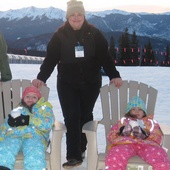With a nursing shortage expected to intensify in the coming years, East Carolina University's College of Nursing enrollment has jumped nearly 40 percent since 2004.
For this fall semester, the college has about 1,200 students enrolled in classes, making it the largest nursing program in North Carolina.
There are now more than 2,600 registered nurses working in the state who graduated from ECU, according to the Sheps Center, a health services research facility based in Chapel Hill.
"We've grown phenomenally," said Sylvia T. Brown, acting dean of the College of Nursing. "We have steadily increased our enrollment, but it eventually gets to the point where you get tight. There is somewhat of a limit."
Every semester, Brown said, the College of Nursing receives about 350 applications, but has room for only 130 students. That is a big jump from its inaugural class of 1964, which consisted of 17 graduates.
Still, Brown said, there are some constraints to how many nursing students the college can admit, including the availability of clinical site placements and a limited number of faculty members.
"It's a complicated process when you look at the enrollment," she said. "It's more than just putting (students) in a classroom. You have to think about the clinical experience."
To help prepare them for clinical settings, the Health Sciences Building, which opened in 2006, houses eight simulation labs where students can practice basic and advanced medical procedures on mannequins programmed by computers.
Laura Gantt, executive director of learning technologies and labs at the College of Nursing, said the students can practice taking blood pressure, assessing normal and abnormal heart or lung sounds and different patient-care scenarios.
"I think labs, historically, have always been used to practice in a safe environment," Gantt said. "That is why simulation labs are so big. We want our students to be prepared before they practice on people."
The growing need for nurses has been documented by the American Association of Colleges of Nursing, which predicts the shortage of registered nurses across the country could reach 500,000 by 2025, according to a report by Dr. Peter Buerhaus. The report states the demand for registered nurses continues to grow by two or three percent each year.
Locally, Brown said, there is an extreme shortage of nurses and nurse faculty in the state, with about 20,000 nurses needed by 2015 and as many as 32,000 needed by 2020.
The Sheps Center reports nearly 11 percent of all active, registered nurses working in the state with a Bachelor of Science in Nursing degree, graduated from ECU. Of that number, most are concentrated in and around eastern North Carolina.
In Pitt County, ECU nurses account for more than 60 percent of the total number, according to the Sheps Center.
"We are a big school with a down-home atmosphere," Brown said. "We attract people who are interested in staying in eastern North Carolina. I think they realize that we are a quality school, and I guess that is why they choose us."
Two students who say they plan to stay in North Carolina to practice nursing, Joe Gill and Caitlin Biggerstaff, are entering their third semester in the college. Both Gill and Biggerstaff worked in externships at Pitt County Memorial Hospital, which the College of Nursing helped them secure, and plan to work there after they graduate
Gill said he likes the potential behind ECU, because it provides a lot of areas for success. Similarly, he said, the elevated level of education makes the nursing students competitive with people from all other backgrounds.
"The College of Nursing promotes us being patient advocates when we are treating them," Gill said. "You have the opportunity to have an immediate impact on people's lives and a delayed impact on the community as a whole."
Biggerstaff said she often sees the administration make the effort to reach out to its high achievers, which creates a conducive environment for success. She described the education she has received from the college as superior.
"ECU provides you with that pride," said Biggerstaff, a Greenville native who received her undergraduate degree from the University of North Carolina at Chapel Hill. "The teachers really reach out to us. They are student-advocates like we are patient-advocates."
Thinking of attending East Carolina? Purchase a home for your child with FHA Kitty Condo program and use tax advantage for you!
For all the homes avaliable for sale near the hospital and the School of Nursing, visit my website www.greenvillehomesnow.com.

Comments(0)